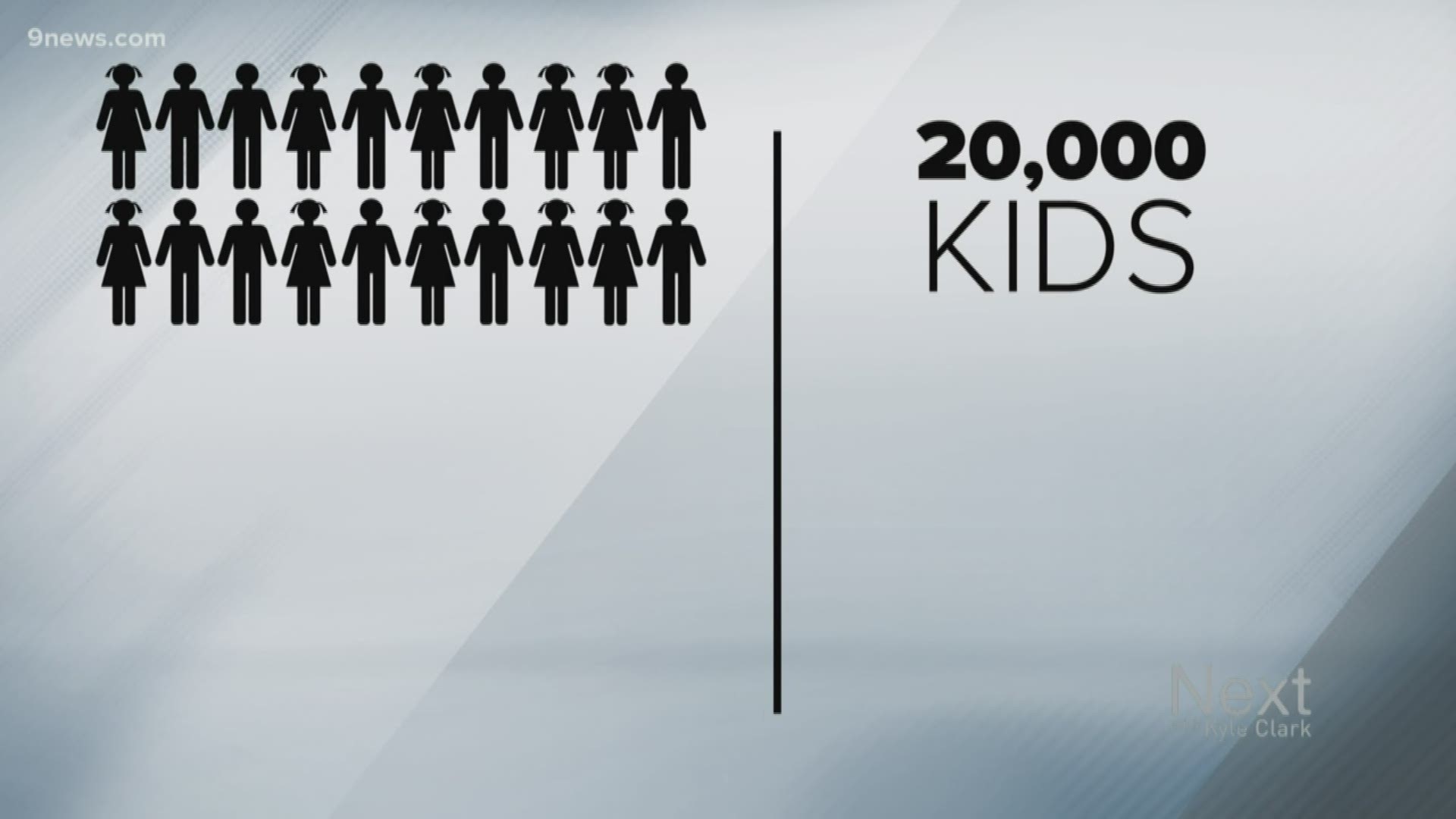DENVER — Every year the Colorado Health Institute releases its findings from a state-wide health survey called the Colorado Health Access Survey. It's a survey of 10,000 people addressing everything from insurance coverage, access to health care and food and housing affordability.
One of the findings researchers from the institute highlighted was how the number of uninsured children went up in the state, from roughly 2.5% in 2015 to 4.3% through the spring of 2019.
This translates to an additional 20,000 kids who no longer have insurance in the last 24 month, bringing the total to roughly 54,000, according to Michele Lueck, the president and CEO of the research group.
Lueck said there are the constant factors that have served as obstacles to health insurance for kids for years, such as cost and access to health care, especially in rural Colorado. She also said some families started earning more so they were no longer eligible for Medicaid or Child Health Plan Plus (CHP), a joint federal-state program administered by the state.
Both programs help make health care affordable based on income.
Survey results also revealed that the biggest spike in kids living without insurance was in the Hispanic/Latino community jumping from 2.4% in 2017 to 7.9% in 2019. That percentage, when scaled to the state's population equates to 27,000 kids uninsured in 2019 compared to 9,000 in 2017.
Lueck said researchers in 2018 started looking into immigration policy that could be playing a role in those numbers.
The new "public charge" rules that go into effect October 15th have some families worried using a program like Medicaid, or having family members on it, could impact their chances to stay in the country long term, like getting a green card.
"It's not the impact of regulation," Leuck said. "It's not even implemented, it's the heightened concern about this."
Joshua Mitson, an immigration lawyer in Denver, said the public charge rules focus on if someone is eligible to stay in the country long term, mostly pertaining to applying for green cards and visas.
The federal government considers if a person would become a "burden" on the government and considers expanding which government programs could count against a person pursuing permanent residency or a change in immigration status.
The Colorado Health Institute suspects some families got nervous that even if their kids were on Medicaid, it could impact other family member's paperwork because of the initial proposals on how to change the rules.
The finalized version of the rules online indicated that won't be the case but Mitson said the rules are confusing enough that even lawyers are still interpreting it differently.
He also said he thinks it's reasonable that U.S. citizen children receiving these benefits could impact the "discretionary determination by the officer."
When the Health Institute talks about insurance, that includes public, private and through the military. Its researchers also estimate a lot of the kids affected by the drop in insurance are U.S. Citizens.
In order to enroll in Medicaid and CHP you have to be a citizen, according to Marc Williams with the Colorado Department of Health Care Policy and Financing.
The department shared its own statistics, showing 554,512 kids were enrolled in Medicaid in fiscal year 2016 to 2017. That number dropped to 501,444 from 2018 to 2019.
Kids enrolled in the CHP, the state-administered program, climbed from 65,260 to 80,709 in that same time period.
Williams said a likely reason could be that CHP allows families to earn a little more than Medicaid and still be eligible to get coverage and as the economy improved in the state, some parents' incomes went up.
The Colorado Children's Campaign, an advocacy group for kids, were briefed about the findings Tuesday and said it was disappointed.
Erin Miller, the vice president of the Health Initiative with the Colorado Children's Campaign, said a lack of insurance for kids can lead to a gamut of other issues, including affecting education, mental health and mortality rates.
Miller said there has been a lot of work over the years to drop the number of uninsured kids. The Colorado Health Institute said those numbers had been dropping since 2009 until recently.
She also agreed rhetoric and changes in immigration policy could be a factor and said now the question is how to address it. Miller said that could include shoring up the CHP program, to make it easier to enroll in and access.
The Colorado Health Institute said at this point its role is to share findings with different groups that can take action with it.
SUGGESTED VIDEOS | Next with Kyle Clark

